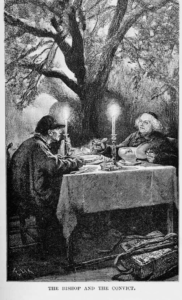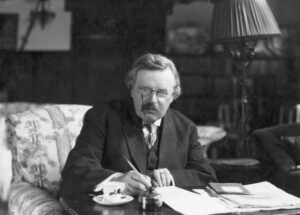[vc_row row_padding_bottom=”30″][vc_column][textbox title=”Valentine & MLK” title_color=”#2f2f2f” title_fontsize=”40″ text_under_align=”center” subtitle=”Cherie Harder” subtitle_color=”#757575″ content_align=”center”][/vc_column][/vc_row][vc_row][vc_column width=”1/6″ css=”.vc_custom_1547644032611{margin-top: 20px !important;border-top-width: 0px !important;padding-top: 10px !important;padding-right: 10px !important;padding-bottom: 10px !important;padding-left: 10px !important;background-color: #eeeeee !important;border-top-style: solid !important;}”][imagebox image_url=”14483″ image_hover=”disable”][/vc_column][vc_column width=”5/6″][vc_column_text]
Tuesday, February 14, 2012
“I know that love is ultimately the only answer to mankind’s problems…. I’m not talking about emotional bosh when I talk about love. I’m talking about a strong, demanding love.”
–Martin Luther King, Jr.
On a day typically celebrated with candy hearts, Hallmark cards, and teddy bears, it is worth noting that the love practiced and preached by Valentine may more closely resemble that espoused by the namesake of last month’s holiday, Martin Luther King, Jr., than today’s trappings and trinkets.
Of Valentine himself, little is known – and indeed, most historians believe that there was more than one martyr named Valentine. One of the more popular legends has it that Valentine was imprisoned for marrying Christians at a time when the Emperor Claudius II had decided that single men made better soldiers and thus made marriage illegal.
Other stories have it that Valentine helped free imprisoned Christians from jail and provided other forms of aid at a time when they were under persecution – until he himself was arrested, placed under a death sentence, and on the eve of his execution, sent a note to the jailer’s daughter, whom he had befriended, signed “from your Valentine”. Centuries later, Chaucer remade the tale of Valentine into a more romantic form which suited the age’s interest in courtly love – and eventually led to our modern holiday.
In some ways, Valentine’s legacy of courageous love and care for the disenfranchised finds apt continuation in the example of Martin Luther King, Jr. King had a great deal to say about love, and saw it as the basis for the realization of justice, and as the catalyst for creativity, redemption, and reconciliation. His writings focus largely on the transformative power of a tough love – and in particular, the toughest love of all: love of one’s enemies.
King repeatedly articulated the idea that love was the key for reform and the realization of a good society – and that far from being mushy or sappy, it was not only the most practical, but the only effective means of bringing about a just social order.
He argued: “Upheaval after upheaval has reminded us that modern man is traveling along a road called hate in a journey that will bring us to destruction and damnation. Far from being the pious injunction of a Utopian dreamer, the command to love one’s enemy is an absolute necessity for our survival. Love even for enemies is the key to the solution of the problem of our world. Jesus is not an impractical idealist; he is a practical realist…. Why should we love our enemies? The first reason is fairly obvious. Returning hate for hate multiplies hate, adding deeper darkness to a night already devoid of stars… Another reason why we must love our enemies is that hate scars the soul and distorts the personality… A third reason why we should love our enemies is that love is the only force capable of transforming an enemy into a friend…. By its very nature, hate destroys and tears down, by its very nature, love creates and builds up. Love transforms with redemptive power.”
Later this spring, we will release our newest Reading presenting Dr. King’s “Letter From a Birmingham Jail” which expounds and expands upon this theme. It is a potent articulation of the need for love – of God, of neighbor, and even of one’s enemy – for us to flourish not only individually, but societally. When, in the midst of systematic oppression and injustice, King articulated a means of meeting violence with non-violence, injustice with forgiveness, and hatred with love, he illuminated a way forward and through centuries of bigotry towards reconciliation and peace. Far from being sappy, he showed, with his own life and example, that love is tough, demanding, and costly – much like the saint we celebrate today.
Warmly,
Cherie Harder
President
[/vc_column_text][/vc_column][/vc_row]


